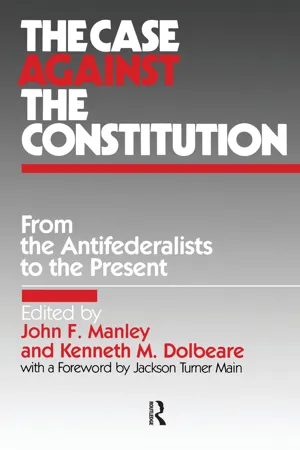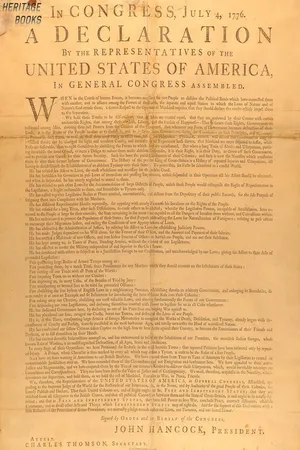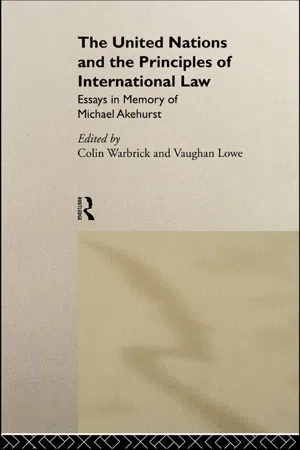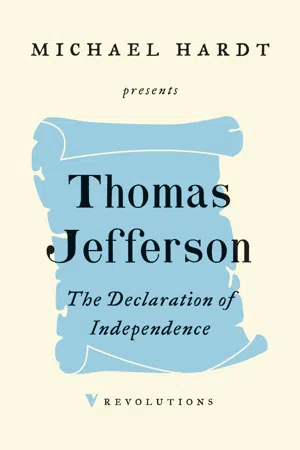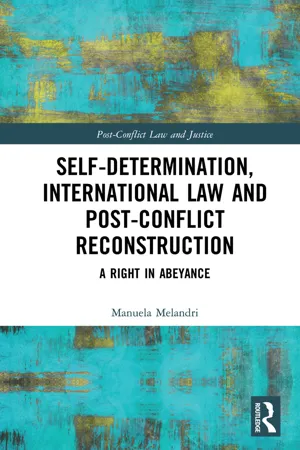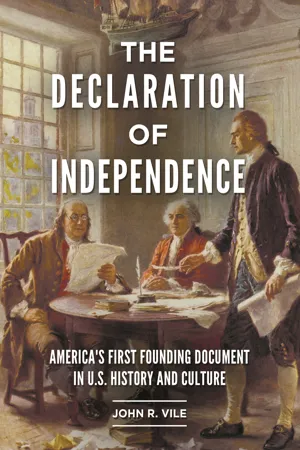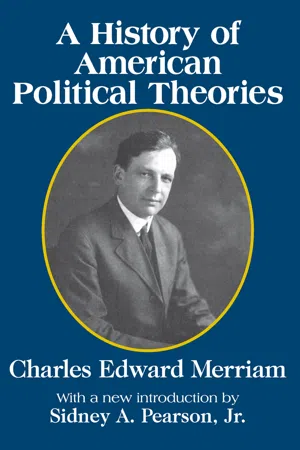Politics & International Relations
The Declaration of Independence
The Declaration of Independence, adopted by the Continental Congress on July 4, 1776, announced the thirteen American colonies' decision to break away from British rule. It outlined the principles of self-government and individual rights, asserting that all people are created equal and have the right to life, liberty, and the pursuit of happiness. The document served as a catalyst for the American Revolutionary War and inspired movements for independence worldwide.
Written by Perlego with AI-assistance
Related key terms
7 Key excerpts on "The Declaration of Independence"
- eBook - ePub
- John F. Manley, Kenneth M. Dolbeare(Authors)
- 2016(Publication Date)
- Routledge(Publisher)
DocumentsPassage contains an image
The Declaration of Independence
When in the Course of human events, it becomes necessary for one people to dissolve the political bands which have connected them with another, and to assume among the Powers of the earth, the separate and equal station to which the Laws of Nature and of Nature's God entitle them, a decent respect to the opinions of mankind requires that they should declare the causes which impel them to the separation.We hold these truths to be self-evident, that all men are created equal, that they are endowed by their Creator with certain unalienable Rights, that among these are Life, Liberty and the pursuit of Happiness. That to secure these rights, Governments are instituted among Men, deriving their just powers from the consent of the governed. That whenever any Form of Government becomes destructive of these ends, it is the Right of the People to alter or abolish it, and to institute new Government, laying its foundation on such principles and organizing its powers in such form, as to them shall seem most likely to effect their Safety and Happiness. Prudence, indeed, will dictate that Governments long established should not be changed for light and transient causes; and accordingly all experience hath shown, that mankind are more disposed to suffer, while evils are sufferable, than to right themselves by abolishing the forms to which they are accustomed. When a long train of abuses and usurpations, pursuing invariably the same Object evinces a design to reduce them under absolute Despotism, it is their right, it is their duty, to throw off such Government, and to provide new Guards for their future security.—Such has been the patient sufferance of these Colonies; and such is now the necessity which constrains them to alter their former Systems of Government. The history of the present King of Great Britain is a history of repeated injuries and usurpations, all having in direct object the establishment of an absolute Tyranny over these States. To prove this, let Facts be submitted to a candid world. - Thomas Jefferson(Author)
- 2019(Publication Date)
- Heritage Books(Publisher)
The Declaration of Independence of the United States of America
The Declaration of Independence OF THE UNITED STATES OF AMERICAWhen in the Course of human events, it becomes necessary for one people to dissolve the political bands which have connected them with another, and to assume, among the Powers of the earth, the separate and equal station to which the Laws of Nature and of Nature's God entitle them, a decent respect to the opinions of mankind requires that they should declare the causes which impel them to the separation.We hold these truths to be self-evident, that all men are created equal, that they are endowed by their Creator with certain unalienable Rights, that among these are Life, Liberty, and the pursuit of Happiness. That to secure these rights, Governments are instituted among Men, deriving their just powers from the consent of the governed, That whenever any Form of Government becomes destructive of these ends, it is the Right of the People to alter or to abolish it, and to institute new Government, laying its foundation on such principles and organizing its powers in such form, as to them shall seem most likely to effect their Safety and Happiness. Prudence, indeed, will dictate that Governments long established should not be changed for light and transient causes; and accordingly all experience hath shown, that mankind are more disposed to suffer, while evils are sufferable, than to right themselves by abolishing the forms to which they are accustomed. But when a long train of abuses and usurpations, pursuing invariably the same Object evinces a design to reduce them under absolute Despotism, it is their right, it is their duty, to throw off such Government, and to provide new Guards for their future security. —Such has been the patient sufferance of these Colonies; and such is now the necessity which constrains them to alter their former Systems of Government. The history of the present King of Great Britain is a history of repeated injuries and usurpations, all having in direct object the establishment of an absolute Tyranny over these States. To prove this, let Facts be submitted to a candid world.- eBook - ePub
The United Nations and the Principles of International Law
Essays in Memory of Michael Akehurst
- Vaughan Lowe, Colin Warbrick(Authors)
- 2002(Publication Date)
- Routledge(Publisher)
32 Self-determination is described in a manner that transcends the colonial context and the obsession with independence. By virtue of self-determination, ‘all peoples have the right freely to determine, without external interference, their political status and to pursue their economic, social and cultural development’. Both ‘status’ and ‘development’ aspects are incorporated in self-determination, following the pattern of the Colonial Declaration. Open-ended modes of exercise are attached to the right:The establishment of a sovereign and independent State, the free association or integration with an independent State or the emergence into any other political status freely determined by a people constitute modes of implementing self-determination by that people.33The self-determination section includes a free-standing paragraph on human rights, implicitly recalling UN Charter Articles 55 and 56.34 A territorial integrity paragraph protects a State or country from the actions of other States. The overall integrity principle is qualified in a penultimate paragraph on peoples in existing States:Nothing in the foregoing paragraphs shall be construed as authorizing or encouraging any action which would dismember or impair, totally or in part, the territorial integrity or political unity of sovereign and independent States conducting themselves in compliance with the principle of equal rights and self-determination of peoples as described above and thus possessed of a government representing the whole people belonging to the territory without distinction as to race, creed or colour.Although brief, this has clear possibilities of elaboration. Cassese finds therein a limited concept of ‘internal’ self-determination, which consists in the possession by a sovereign and independent State of a government representing the whole people on a non-discriminatory basis.35 - eBook - ePub
- Thomas Jefferson(Author)
- 2019(Publication Date)
- Verso(Publisher)
[We therefore the representatives of the United States of America in General Congress assembled, appealing to the supreme judge of the world for the rectitude of our intentions, do in the name, & by the authority of the good people of these colonies, solemnly publish & declare that these united colonies are & of right ought to be free & independent states; that they are absolved from all allegiance to the British crown, and that all political connection between them & the state of Great Britain is, & ought to be, totally dissolved; & that as free & independent states they have full power to levy war, conclude peace, contract alliances, establish commerce & to do all other acts & things which independent states may of right do.And for the support of this declaration, with a firm reliance on the protection of divine providence we mutually pledge to each other our lives, our fortunes, & our sacred honor.] The Declaration thus signed on the 4th, on paper was engrossed on parchment, & signed again on the 2d. of August. ____________________1 Words deleted by Congress are designated by underscoring, and those added by brackets.Passage contains an image
THE DECLARATION OFINDEPENDENCE (AS ADOPTEDBY CONGRESS)
JULY 4, 1776The Unanimous Declaration of theThirteen United States of America
When in the Course of human events it becomes necessary for one people to dissolve the political bands which have connected them with another and to assume among the powers of the earth, the separate and equal station to which the Laws of Nature and of Nature’s God entitle them, a decent respect to the opinions of mankind requires that they should declare the causes which impel them to the separation.We hold these truths to be self-evident, that all men are created equal, that they are endowed by their Creator with certain unalienable Rights, that among these are Life, Liberty and the pursuit of Happiness. – That to secure these rights, Governments are instituted among Men, deriving their just powers from the consent of the governed, – That whenever any Form of Government becomes destructive of these ends, it is the Right of the People to alter or to abolish it, and to institute new Government, laying its foundation on such principles and organizing its powers in such form, as to them shall seem most likely to effect their Safety and Happiness. Prudence, indeed, will dictate that Governments long established should not be changed for light and transient causes; and accordingly all experience hath shewn that mankind are more disposed to suffer, while evils are sufferable than to right themselves by abolishing the forms to which they are accustomed. But when a long train of abuses and usurpations, pursuing invariably the same Object evinces a design to reduce them under absolute Despotism, it is their right, it is their duty, to throw off such Government, and to provide new Guards for their future security. – Such has been the patient sufferance of these Colonies; and such is now the necessity which constrains them to alter their former Systems of Government. The history of the present King of Great Britain is a history of repeated injuries and usurpations, all having in direct object the establishment of an absolute Tyranny over these States. To prove this, let Facts be submitted to a candid world. - eBook - ePub
Self-Determination, International Law and Post-Conflict Reconstruction
A Right in Abeyance
- Manuela Melandri(Author)
- 2018(Publication Date)
- Routledge(Publisher)
The resolution indeed proclaimed the existence of a ‘right’ of self-determination for all peoples. Paragraph 2 of the document reads: 2. All peoples have the right to self-determination; by virtue of that right they freely determine their political status and freely pursue their economic, social and cultural development. Whilst the resolution has a non-binding character, hence being not a law-making instrument in itself, its effects on the development of international law today are undisputed. 88 The Declaration has indeed influenced a highly significant number of subsequent assembly resolutions, declarations and conventions, creating a set of consistent practice and, with it, of opinio juris, around the issue of decolonisation. In brief, today it is possible to say that it was with the Declaration, in 1960, that self-determination became a right vested in the colonial peoples residing in non-self-governing territories. 89 Thus, it can be said that, at that moment in time, a new layer of self-determination was created, and that the principle acquired a new, additional meaning in international law. Here I will not analyse in detail the contribution of the Declaration to the development of international law on self-determination. This point has already been dealt with at length in other occasions and is well-established in the literature. 90 For the purposes of this study, it shall be sufficient to accomplish a much less ambitious task. Simply, in this section I wish to explain that the Declaration brings an important conceptual development in the life of self-determination as a principle of international law. Moreover, I wish to highlight how this development represents a departure from the meaning originally attributed to self-determination which was set out in the UN Charter, and that the existence of these two branches of the principle is not mutually exclusive - eBook - ePub
The Declaration of Independence
America's First Founding Document in U.S. History and Culture
- John R. Vile(Author)
- 2018(Publication Date)
- ABC-CLIO(Publisher)
It is perhaps natural to associate The Declaration of Independence with a commitment to democracy, or government by the people, but the document does not mention this specific word. The opening paragraph does identify as self-evident the principles that “all men are created equal” and that they are entitled to certain “unalienable rights.” It further says that government should rest on “the consent of the governed” and declares that the governed have the right to overturn governments that do not provide for liberty. As much as its indictments against the current British king might have pointed in the direction of representative democracy and as much as many of the newly minted state constitutions may have been democratic, the purpose of the Declaration was not, like that of the Articles of Confederation and the Constitution, to prescribe a particular form of government. Instead, its purpose was to justify the colonial decision to seek independence from Great Britain.According to the Declaration, the primary purpose of government was to secure liberty. Many of the Founders would have commended the mixed form of government (which included a king) for securing such liberties in Great Britain, while arguing that, without representation of the colonies in the British Parliament, their own liberties were in jeopardy. After observing that the Declaration does not mention the word “democracy,” Paul Eidelberg observes that “what the Declaration emphasizes is not the forms but the ends of government” (1974, 447). Such ends would obviously preclude subjecting one’s country to tyranny, or modern totalitarianism, while still leaving a number of forms, such as constitutional monarchy, that might preserve liberty.When delegates gathered in Philadelphia to write the Constitution, they created a system in which states were represented according to population in the House of Representatives, whose members served short, two-year terms. They provided longer terms for senators, who were initially elected by state legislatures, and they created an indirect system of election for the U.S. president. Significantly, this constitution abolished titles of nobility, which, like hereditary monarchy, suggested that some families were more entitled to rule than others. The document further relied on mechanisms like bicameralism, separation of powers, checks and balances, federalism, and judicial review to temper direct democracy so as to avoid tyrannical majorities (Diamond 1976). - eBook - ePub
- Charles Merriam(Author)
- 2017(Publication Date)
- Routledge(Publisher)
CHAPTER II THE POLITICAL THEORY OF THE REVOLUTIONARY PERIODTHE most important and significant statement of American political theory is that made at the time when the United States asserted the right to an independent existence. The Declaration of Independence has been generally regarded as the corner-stone of the American political system, and the ideas of the “Fathers” of 1776 as a correct statement of the typical American political philosophy. These doctrines have undoubtedly exerted a profound influence in determining the course of American political thought. Even down to the present day, they are the standards by which must be measured all that is attempted in the world of politics. No study of American political ideas, or of American political institutions, would be complete without a careful analysis of the characteristic doctrines of 1776.It is, then, the purpose of this chapter to examine carefully the nature and origin of the political ideas prevalent during the score of years covering the Revolutionary period; that is, from about 1763 to about 1783. The exposition of the doctrines of this period is rendered somewhat difficult by the fact that there was no systematic presentation of political theory made during this time. There was an unlimited amount of discussion from platform and pulpit, in pamphlets, resolutions, addresses, and newspapers, but a scientific statement of the popular beliefs was not made. It was natural that under the conditions no scientific shape could be given to any body of doctrine. Men wrote and spoke with eloquence and force, and they were men of intellectual keenness and power; they spoke, however, not as philosophers, but as partisans and promoters of a concrete revolutionary program.Among the most important sources of information for this period, despite their unsystematic form, are the speeches and writings of such men as Otis, John and Samuel Adams, Dickinson, Paine, Jefferson, and Hamilton. Many indications of the Patriot theory are also found in the various declarations of colonial rights that were made on numerous occasions by legislatures or other less formal public assemblages. Finally, in the Revolutionary state constitutions are expressed, in legal form, the principles that were dominant among the people. From this material the ideas of this time may be reconstructed, and a fairly adequate and comprehensive view of its political theory obtained.
Index pages curate the most relevant extracts from our library of academic textbooks. They’ve been created using an in-house natural language model (NLM), each adding context and meaning to key research topics.
